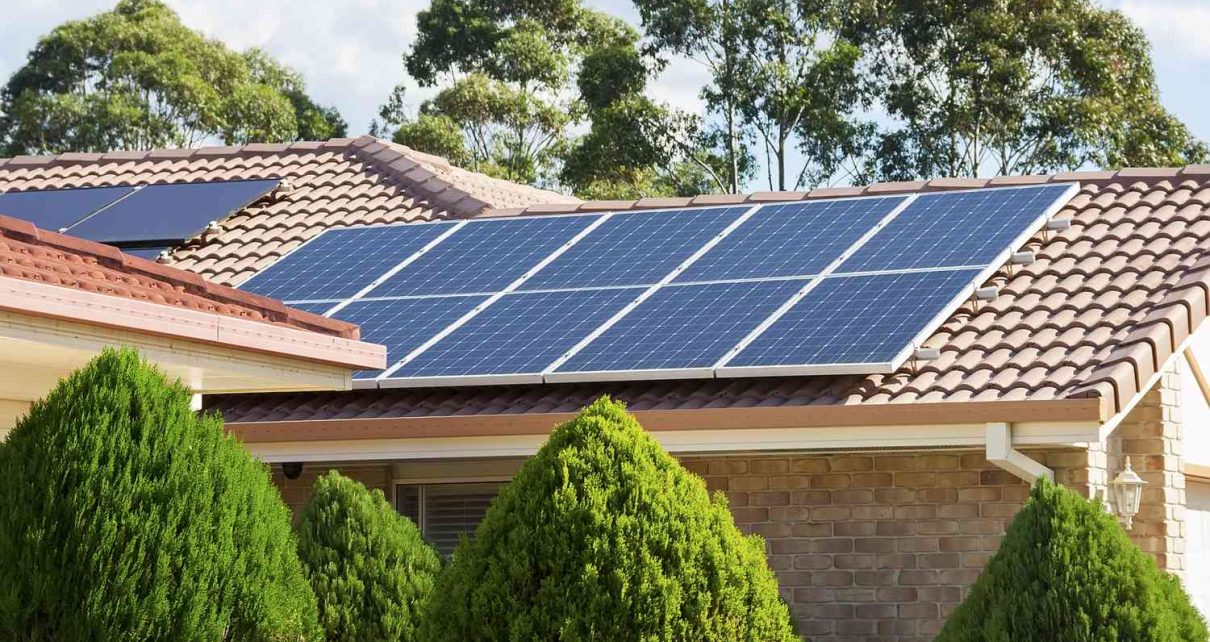Table of Contents
Introduction to Solar Energy Systems
Solar energy is rapidly gaining momentum as a clean and renewable source of power. As concerns over climate change and dwindling fossil fuels grow, solar energy systems have become a beacon of hope for a sustainable future. This article explores the world of solar energy systems, shedding light on their functionality, benefits, and significance in our lives.
The Basics of Solar Energy
How Solar Panels Work
At the heart of any solar energy system lies the solar panels. These remarkable devices convert sunlight into electricity through the photovoltaic effect. When sunlight strikes the solar cells within the panels, electrons are set in motion, generating a direct current (DC). This DC electricity is then converted into alternating current (AC) through inverters for practical use in homes and businesses.
Types of Solar Panels
Solar panels come in various types, each with its unique features and efficiency levels. Monocrystalline, polycrystalline, and thin-film solar panels are among the most common choices. Understanding their differences can help users make informed decisions when choosing the right panel for their specific needs.
Pros and Cons of Solar Energy
While solar energy offers numerous advantages, it’s essential to acknowledge its limitations as well. Exploring the pros and cons of solar power enables individuals to weigh their options effectively and determine if solar energy systems are the right fit for their energy requirements.
Understanding Solar Energy Systems
Components of a Solar Energy System
A comprehensive solar energy system consists of more than just solar panels. Other critical components include mounting racks, inverters, batteries (for off-grid systems), and electrical wiring. Understanding each part’s role is crucial for a successful solar setup.
On-Grid vs. Off-Grid Systems
Solar energy systems can be categorized as on-grid or off-grid, depending on their connection to the main power grid. Each system type has its advantages and limitations, and the choice often depends on location, budget, and energy needs.
Hybrid Solar Systems
Hybrid solar systems combine the best of both on-grid and off-grid systems. They allow users to store excess energy in batteries while remaining connected to the grid, providing a reliable power supply even during grid outages.
Choosing the Right Solar Energy System
Assessing Energy Needs
Before installing a solar energy system, determining the energy needs of a household or business is crucial. Conducting an energy audit helps gauge how much electricity the system should generate to meet daily requirements efficiently.
Sizing and Designing the System
Once the energy needs are established, sizing the solar energy system appropriately is the next step. Proper design ensures maximum energy output and a faster return on investment.
Factors to Consider in Installation
Several factors, such as the orientation and tilt of the solar panels, shading issues, and local regulations, must be considered during installation. These factors play a pivotal role in the system’s overall performance and longevity.
Benefits of Solar Energy Systems
Environmental Benefits
Switching to solar energy significantly reduces reliance on fossil fuels, thereby lowering greenhouse gas emissions and combating climate change. Embracing solar power is a crucial step towards a cleaner and healthier planet.
Financial Benefits
While the initial investment may seem substantial, solar energy systems provide long-term financial benefits. Lower electricity bills, potential government incentives, and increased property value are some of the ways solar users can save money in the long run.
Energy Independence
By harnessing the power of the sun, individuals and communities can achieve energy independence, reducing their vulnerability to energy price fluctuations and shortages.
Maintenance and Care of Solar Energy Systems
Regular Inspection and Cleaning
Ensuring optimal performance of a solar energy system requires periodic inspections and cleaning. Dust, debris, and shading can hinder the panels’ efficiency, making routine maintenance essential.
Dealing with Potential Issues
Although solar energy systems are reliable, occasional issues may arise. Understanding how to identify and troubleshoot these problems can help users address them promptly and effectively.
The Future of Solar Energy
Advancements in Solar Technology
The solar industry continues to evolve rapidly, with ongoing research and innovations leading to more efficient and affordable solar panels.
Integration with Energy Storage
Energy storage solutions, such as solar batteries, enable users to store excess energy generated during sunny periods for use during cloudy days or at night, enhancing the overall efficiency of solar systems.
Solar Energy in Urban Planning
Solar energy is becoming a prominent feature in urban planning, with solar panels integrated into buildings, roads, and infrastructure to harness renewable energy and reduce the strain on traditional power sources.
Solar energy systems are paving the way for a greener and more sustainable world. As technology advances and awareness grows, solar power is becoming increasingly accessible to individuals and businesses alike. Embracing solar energy not only benefits the environment but also offers long-term financial advantages and energy independence.
With solar energy systems playing a pivotal role in shaping a sustainable future, embracing this renewable energy source is not only an eco-friendly choice but also a step towards reducing our carbon footprint and ensuring a cleaner and brighter world for future generations.
Are solar panels suitable for all climates?
Solar panels are designed to work effectively in various climates, but their efficiency can be influenced by factors such as the amount of sunlight available and the temperature. They can still produce electricity even in cloudy or cold conditions, but their output may vary compared to sunny and warm regions.
Can I install solar panels myself?
While it is technically possible to install solar panels on your own, it is highly recommended to hire a professional installer. Proper installation is crucial for the system’s safety, efficiency, and longevity. Professional installers have the expertise and knowledge to handle electrical connections and ensure compliance with local regulations.
What happens during a power outage with on-grid systems?
In on-grid solar systems, if there is a power outage from the main grid, the solar-powered homes will also lose electricity. This is a safety feature to protect utility workers during repairs. However, hybrid solar systems equipped with battery storage can provide backup power during outages, allowing homeowners to have access to electricity even when the grid is down.
Do solar panels require a lot of maintenance?
Solar panels are generally low-maintenance, which is one of their significant advantages. Routine maintenance involves inspecting the panels for dirt, debris, or shading that might affect their performance and cleaning them periodically. Additionally, it’s essential to monitor the system’s overall health, but overall, maintenance requirements are relatively minimal.
Can solar energy systems be used in apartments?
Yes, solar energy systems can indeed be installed on apartment buildings, but there are some considerations to keep in mind. The primary requirement is having sufficient roof space or dedicated areas with good sun exposure for installing solar panels. Additionally, apartment owners or residents need to ensure that their building complies with local regulations and obtain the necessary permissions for solar installation.




